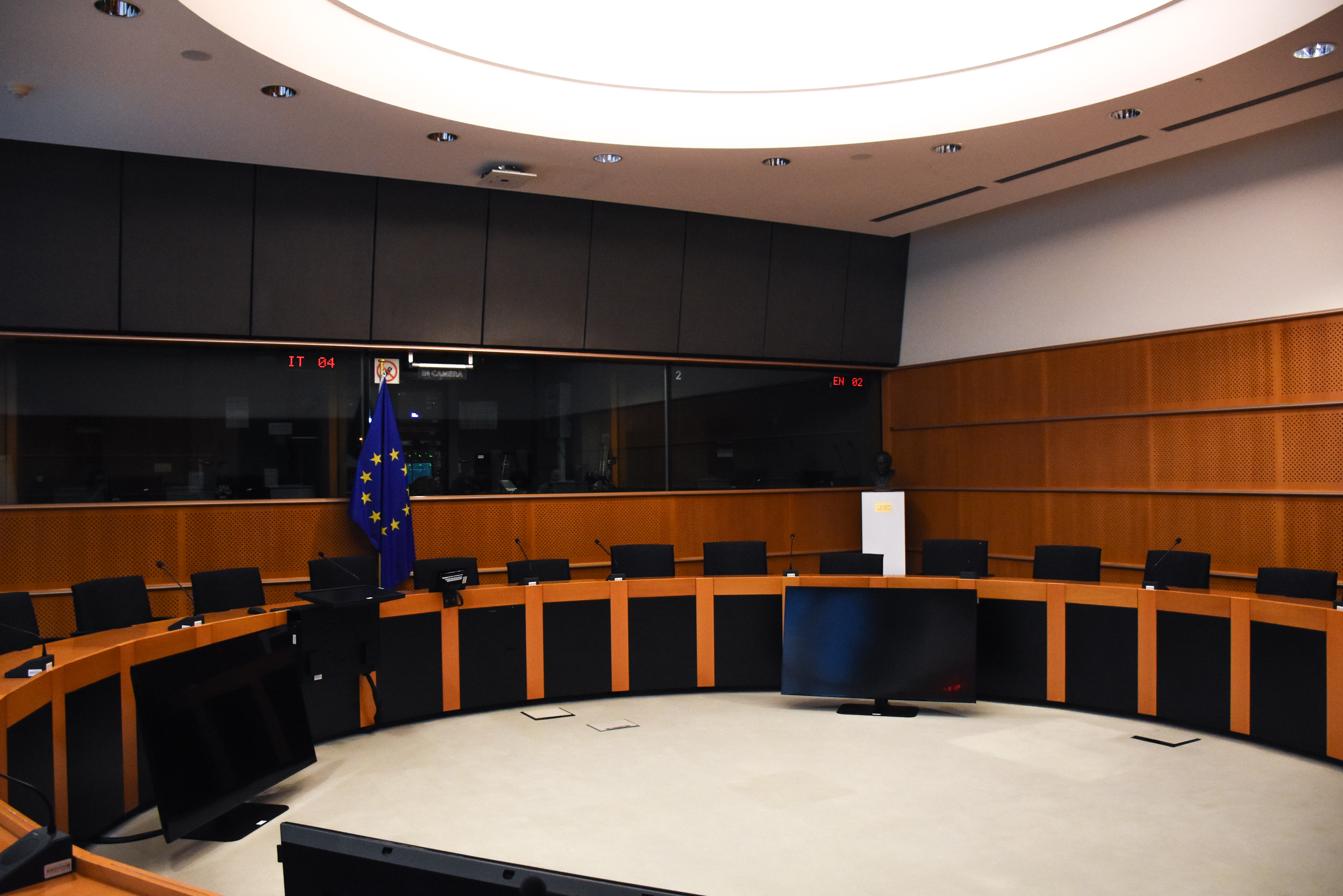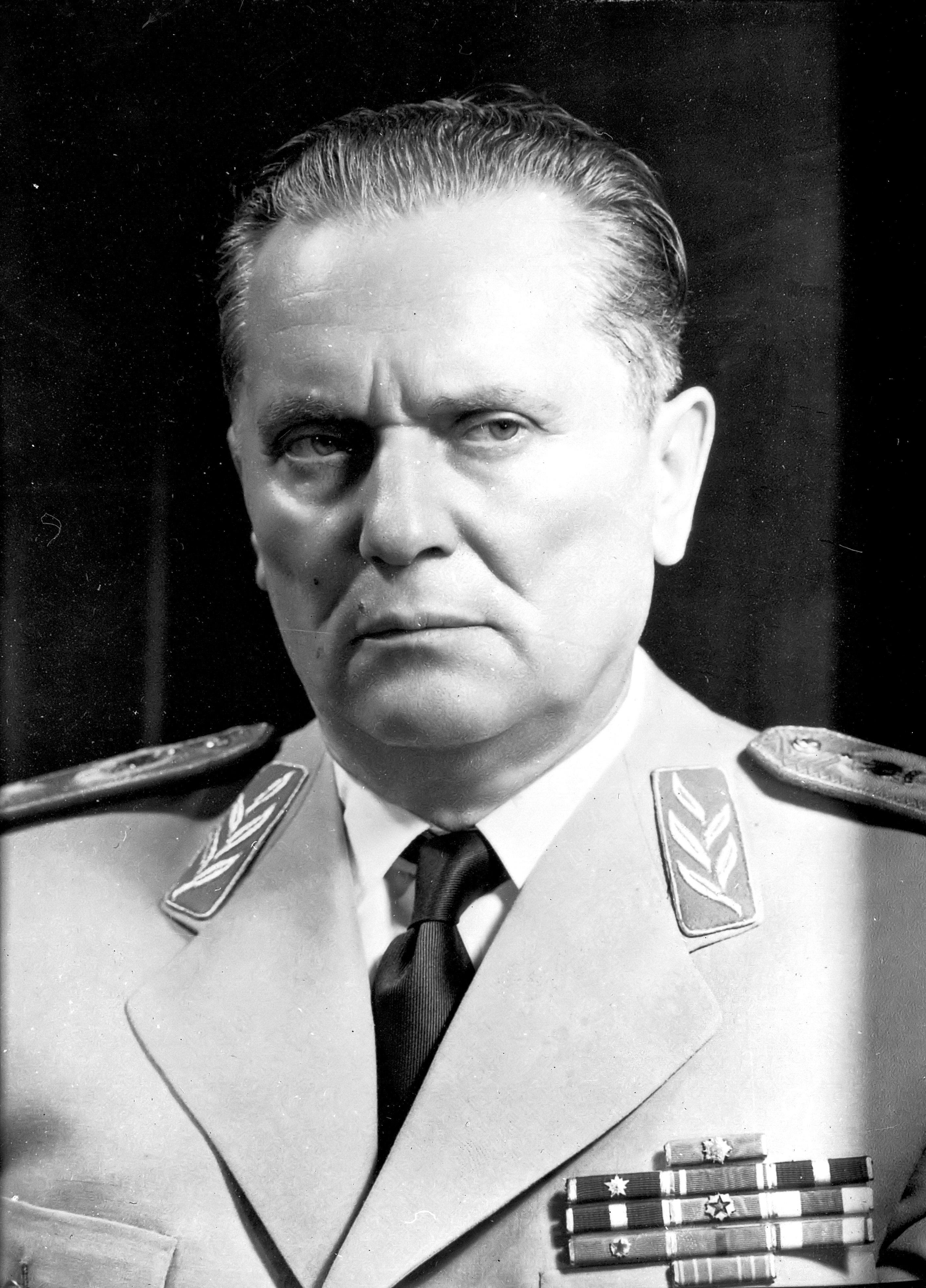|
Jože Pučnik
Jože Pučnik (9 March 1932 – 11 January 2003) was a Slovenian public intellectual, sociologist and politician. During the communist regime of Josip Broz Tito, Pučnik was one of the most outspoken Slovenian critics of dictatorship and lack of civil liberties in SFR Yugoslavia. He was imprisoned for a total of seven years, and later forced into exile. After returning to Slovenia in the late 1980s, he became the leader of the Democratic Opposition of Slovenia, a platform of democratic parties that defeated the communists in the first free elections in 1990 and introduced a democratic system and market economy to Slovenia. He is also considered one of the fathers of Slovenian independence from Yugoslavia. Early life and formation Pučnik was born in the village of Črešnjevec, Slovenska Bistrica, Črešnjevec in Slovenian Styria (now part of the municipality of Slovenska Bistrica), in what was then the Kingdom of Yugoslavia. He came from a Roman Catholic peasant background. ... [...More Info...] [...Related Items...] OR: [Wikipedia] [Google] [Baidu] |
Social Democratic Party Of Slovenia
The Slovenian Democratic Party ( sl, Slovenska demokratska stranka, SDS), formerly the Social Democratic Party of Slovenia ( sl, Socialdemokratska stranka Slovenije, SDSS), is a Conservatism, conservative List of political parties in Slovenia, political party in Slovenia. It has been described as Slovenian nationalism, nationalist and Right-wing populism, right-wing populist, encompassing both National conservatism, national and social conservatism. Led by former Prime Minister of Slovenia Janez Janša, the SDS is a member of the European People's Party (EPP), Centrist Democrat International and International Democrat Union. SDS has its origins in the Slovenian anti-Communist pro-democracy dissident labour union movement of the late 1980s. The Social Democratic Union of Slovenia (later renamed Social Democratic Party and, in 2003, Slovenian Democratic Party) was first headed by trade unionist France Tomšič, then by the prominent Slovenian pro-independence and pro-democracy diss ... [...More Info...] [...Related Items...] OR: [Wikipedia] [Google] [Baidu] |
University Of Ljubljana
The University of Ljubljana ( sl, Univerza v Ljubljani, , la, Universitas Labacensis), often referred to as UL, is the oldest and largest university in Slovenia. It has approximately 39,000 enrolled students. History Beginnings Although certain academies (notably of philosophy and theology) were established as Jesuit higher education in what is now Slovenia as early as the seventeenth century, the first university was founded in 1810 under the ''Écoles centrales'' of the French imperial administration of the Illyrian provinces. The chancellor of the university in Ljubljana during the French period was Joseph Walland (a.k.a. , 1763–1834), born in Upper Carniola. That university was disbanded in 1813, when Austria regained territorial control and reestablished the Imperial Royal Lyceum of Ljubljana as a higher-education institution. Quest for a national university During the second half of the 19th century, several political claims for the establishment of a Slovene-language u ... [...More Info...] [...Related Items...] OR: [Wikipedia] [Google] [Baidu] |
Communist Regime
A communist state, also known as a Marxist–Leninist state, is a one-party state that is administered and governed by a communist party guided by Marxism–Leninism. Marxism–Leninism was the state ideology of the Soviet Union, the Comintern after Bolshevisation and the communist states within the Comecon, the Eastern Bloc and the Warsaw Pact. Marxism–Leninism currently still remains the ideology of a few parties around the world. After its peak when many communist states were established, the Revolutions of 1989 brought down most of the communist states, however, it is still the official ideology of the ruling parties of China, Cuba, Laos, and Vietnam. During most of the 20th century, before the Revolutions of 1989, around one-third of the world's population lived under communist states. Communist states are typically authoritarian and are typically administered through democratic centralism by a single centralised communist party apparatus. These parties are usually M ... [...More Info...] [...Related Items...] OR: [Wikipedia] [Google] [Baidu] |
Communist Party Of Slovenia
The League of Communists of Slovenia ( sl, Zveza komunistov Slovenije, ZKS; sh, Savez komunista Slovenije) was the Slovenian branch of the League of Communists of Yugoslavia, the sole legal party of Yugoslavia from 1945 to 1989. It was established in April 1937 as the Communist Party of Slovenia, as the first autonomous sub-national branch of the Yugoslav Communist Party. Its initial autonomy was further amplified with the Yugoslav constitution of 1974, which devolved greater power to the various republic level branches. History In 1989 Slovenia passed amendments to its constitution that asserted its sovereignty over the federation, its right to secede and set foundations to a multi-party system. These amendments were bitterly opposed by the leadership of Serbia under Slobodan Milošević. On 23 January 1990, the Slovene delegation, headed by Milan Kučan, left the Party Congress of the League of Communists of Yugoslavia, leading to the collapse of the all-Yugoslav party. On 4 ... [...More Info...] [...Related Items...] OR: [Wikipedia] [Google] [Baidu] |
Veno Taufer
Veno Taufer (born 19 February 1933) is a Slovenian poet, essayist, translator and playwright. Under the Communist regime, he was a driving force behind alternative cultural and intellectual projects in Socialist Slovenia, which challenged the cultural policies of the Titoist system. During the Slovenian Spring (1988–1990), he actively participated in the efforts for the democratization and independence of Slovenia.(14 July 2011)Stari sloni, do zadnjega diha na okopih ''Dnevnik (Slovenia)'' (in Slovenian) Biography Taufer was born Venčeslav Taufer in Ljubljana, Slovenia, then part of the Kingdom of Yugoslavia. His father was a left liberal activist, and prominent member of the Sokol athletic movement. Due to his political activities, he was transferred by the Yugoslav conservative regime to the heavily industrialized Central Sava Valley in central Slovenia, where Veno spent his childhood. In 1943, during the German occupation of Yugoslavia in World War II, his father was k ... [...More Info...] [...Related Items...] OR: [Wikipedia] [Google] [Baidu] |
Veljko Rus
Veljko Rus (8 December 1929 – 26 February 2018) was a Slovenian sociologist, writer and academic. He was born in Visnja Gora near Ljubljana, Slovenia (then part of the Kingdom of Yugoslavia) to a prominent upper-middle-class family. His father, Josip, was a left-liberal political activist, leader of the Sokol movement in the Drava Banovina, and one of the founding members of the Liberation Front of the Slovenian People. After finishing high school in Ljubljana, Veljko Rus enrolled with the University of Belgrade Faculty of Philosophy. He obtained a PhD in sociology at the University of Zagreb with a thesis on ''Power and Responsibility in Working Processes''. In the late 1950s, he was part of the so-called "critical generation", a group of young Slovenian intellectuals who followed a critical attitude towards the communist system in the former Yugoslavia, challenging the cultural policies of the Titoist regime. He wrote in alternative journals '' Revija 57'' and '' Perspektiv ... [...More Info...] [...Related Items...] OR: [Wikipedia] [Google] [Baidu] |
Taras Kermauner
Taras Kermauner (13 April 1930 – 11 June 2008) was a Slovenian literary historian, critic, philosopher, essayist, playwright and translator. Life Taras Kermauner was born in Ljubljana as the son of the Slovene communist politician and intellectual Dušan Kermauner. His younger brother, Aleš, was a poet and artist. Taras Kermauner attended the Ljubljana Classical Lyceum and later studied philosophy at the University of Ljubljana, where he graduated in 1954. From 1957-58 he studied in Paris under the supervision of Henri Lefebvre. During his college years, Kermauner started collaborating with a group of Slovene intellectuals and artists who became known as the Critical generation. They published several magazines, such as '' Revija 57'' and '' Perspektive'', which challenged the cultural policies of the Titoist system in the Socialist Republic of Slovenia. Among Kermauner's closest collaborators during this period were the writer and playwright Dominik Smole, poet Dane Z ... [...More Info...] [...Related Items...] OR: [Wikipedia] [Google] [Baidu] |
Socialist Republic Of Slovenia
The Socialist Republic of Slovenia ( sl, Socialistična republika Slovenija, sh-Latn-Cyrl, separator=" / ", Socijalistička Republika Slovenija, Социјалистичка Република Словенија), commonly referred to as Socialist Slovenia or simply Slovenia, was one of the six federal republics forming Yugoslavia and the nation state of the Slovenes. It existed under various names from its creation on 29 November 1945 until 25 June 1991. In 1990, while the country was still part of the Yugoslav federation, the League of Communists of Slovenia allowed for the establishment of other political parties, which led to the democratization of the country. Etymology The official name of the republic was Federal Slovenia (Slovene: ''Federalna Slovenija'', Serbo-Croatian: ''Federalna Slovenija'' / Федерална Словенија) until 20 February 1946, when it was renamed the People's Republic of Slovenia (Slovene: ''Ljudska republika Slovenija'', Serbo-C ... [...More Info...] [...Related Items...] OR: [Wikipedia] [Google] [Baidu] |
Titoist
Titoism is a political philosophy most closely associated with Josip Broz Tito during the Cold War. It is characterized by a broad Yugoslav identity, workers' self-management, a political separation from the Soviet Union, and leadership in the Non-Aligned Movement. Tito led the Communist Yugoslav Partisans during World War II in Yugoslavia. After the war, tensions arose between Yugoslavia and the Soviet Union. Although these issues diminished over time, Yugoslavia still remained relatively independent in thought and policy. Tito led Yugoslavia until his death in 1980. Today, the term "Titoism" is sometimes used to refer to Yugo-nostalgia, a longing for reestablishment or revival of Yugoslavism or Yugoslavia by the citizens of Yugoslavia's successor states. Tito-Stalin split When the rest of Eastern Europe became satellite states of the Soviet Union, Yugoslavia refused to accept the 1948 ''Resolution of the Cominform'' and the period from 1948 to 1955, known as the Infor ... [...More Info...] [...Related Items...] OR: [Wikipedia] [Google] [Baidu] |
Critical Generation
Critical or Critically may refer to: *Critical, or critical but stable, medical states **Critical, or intensive care medicine *Critical juncture, a discontinuous change studied in the social sciences. *Critical Software, a company specializing in mission and business critical information systems *Critical theory, a school of thought that critiques society and culture by applying knowledge from the social sciences and the humanities * Critically endangered, a risk status for wild species *Criticality (status), the condition of sustaining a nuclear chain reaction Art, entertainment, and media * ''Critical'' (novel), a medical thriller written by Robin Cook * ''Critical'' (TV series), a Sky 1 TV series * "Critical" (''Person of Interest''), an episode of the American television drama series ''Person of Interest'' *"Critical", a 1999 single by Zion I People *Cr1TiKaL (born 1994), an American YouTuber and Twitch streamer See also *Critic *Criticality (other) *Critical Conditi ... [...More Info...] [...Related Items...] OR: [Wikipedia] [Google] [Baidu] |



